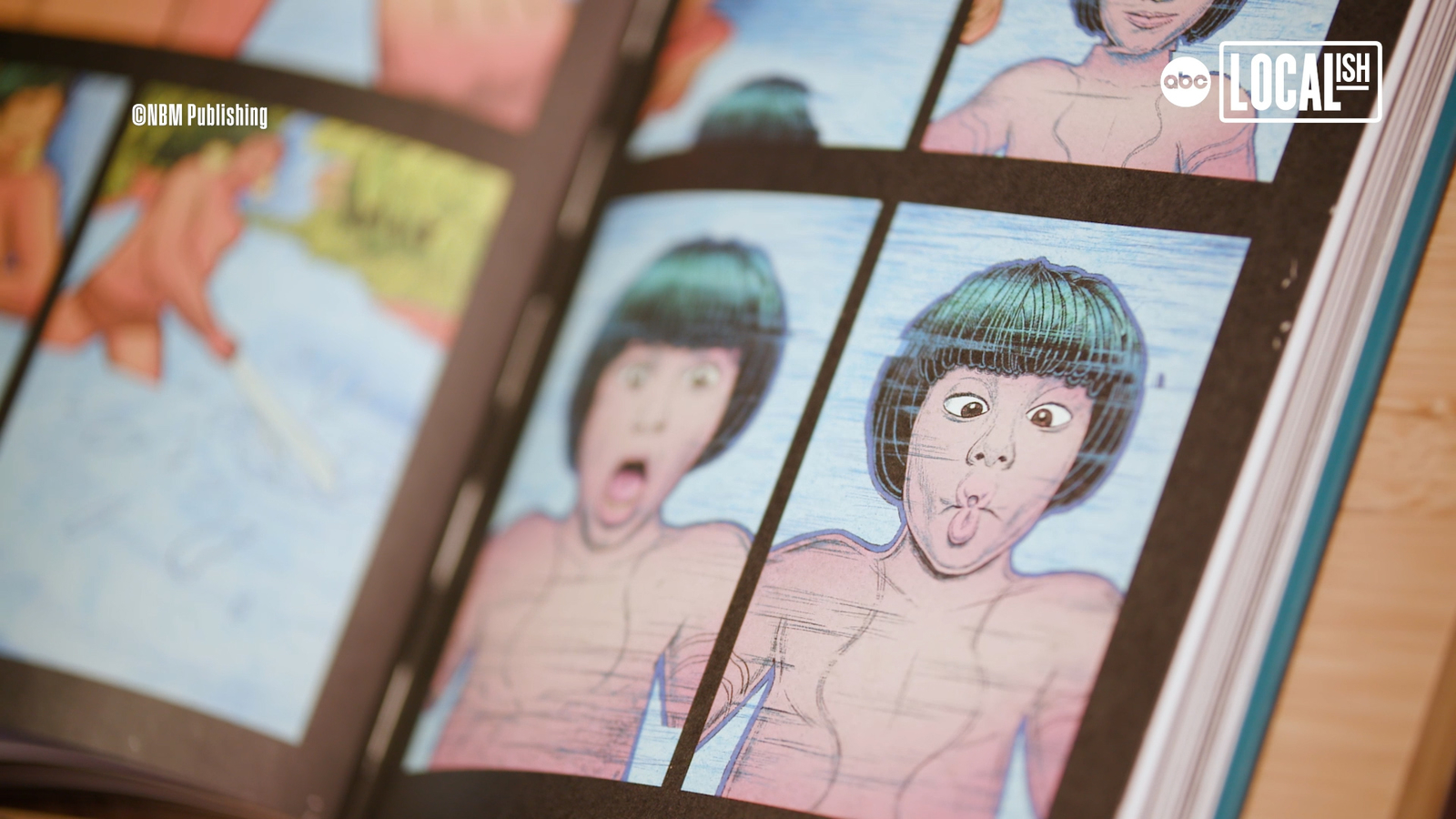NEW YORK — “I remember in college sitting at a bar and a friend would introduce me to another friend and say, ‘hey, his mom lives in the Amazon jungle,” recalls David Good, the co-author of the new graphic novel “Good.”
The novel is based on David’s life experience and the aftermath of his mother, an indigenous Yanomami tribe member, abandoning her family in America to return to her home in the Amazon rainforest when Good was five years old.
“It’s just like going through a time portal, fast-forwarding through a thousand years. Everything was strange and different, the technology, the people and she just couldn’t handle it.”
The book focuses on Good’s coming-of-age story as he navigates and embraces his Indigenous identity and reunites with his mother in the Amazon jungle as an adult.
Good worked alongside co-author and illustrator John Malloy, aka Flux, to bring the story to life through both vibrant and black and white imagery.
“It’s been really great working with him because he let me take a lot of creative liberty,” Malloy says of working with Good. “I think when you turn the page from black and white, my hope is that there is, to color, there’s a sense of relief. So, when you open up to the color it’s like wow. Like okay, I get it, I know why these people have lived the way that they live for so long. They’re immersed in this world and it’s incredible.”
In addition to telling Good’s story, Malloy jumps back and forth through time to tell Good’s mother’s story of growing up among the Yanomami and her experience meeting Good’s father, an anthropologist studying the South American tribe.
“She came and lived in the United States, she was a fish out of water for a short amount of time and then went back to the rainforest and left her family. I started thinking she must have been so alone and missing her family and her community.”
Ultimately, Good hopes that the book not only teaches readers about the Yanomami tribe but also helps others who may be struggling to make sense of their multicultural identity.
“There’s universal elements of love, abandonment, depression, insecurity, family and reunion,” he explains. “And so, I thought what I had gained by finding my identity is something that I felt like could resonate with families all across the world.”
To learn more about the Yanomami tribe visit yanomamifoundation.org
